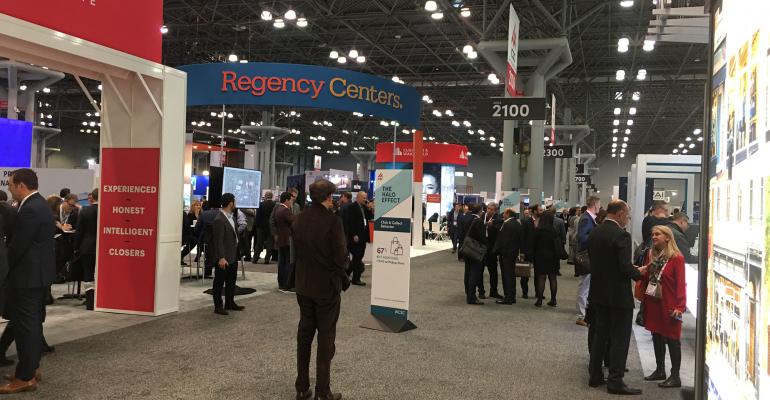The final day of ICSC New York Deal Making Conference taking place this week included discussions of shorter lease terms being signed by retail tenants and the popularity of wellness and experiential tenants. Here are some additional takeaways from the conference:
- Institutional investors are shifting strategies to less of a disposition mode and more to an “even mode” when it comes to retail, said Scott Holmes, senior vice president and national director with the national retail group of brokerage firm Marcus & Millichap. In other words, they are beginning to look to buy and sell around the same volume of properties. “Speaking for ourselves, we have a lot more proposal volume going out right now than last year for example,” according to Holmes, who agrees that transaction volume growing “looks to be the case for the first half of the [next] year.”
- Industry insiders say the retail sector is in the beginning stages of a transition period, adapting to new consumer preferences. Frank Greco, managing director at real estate services firm Savills, said retailers will need less space to adopt a smaller type of format, where preference is placed on a “showroom”-type environment.
- Wellness tenants are booming, according to most of the conference attendees NREI spoke to. These tenants include medical clinics, dental offices and fitness clubs. Research finds these locations also bring in a large influx of consumers to a shopping center. Expect more of these tenant types to help revive the retail sector.
- Experiential retail remains a driving force in the sector as well. Over the past few years, expenditures on experience-related services like amusement parks and restaurants grew more than 1.5 times faster than overall spending and almost four times faster than expenditures on goods, according to JLL research.
- A concern in the retail sector is that lease terms are getting shorter. Average lease length for general retail and apparel stores has contracted from 6 years in 2007 to 4.5 years today, according to CoStar data. Traditional leases in the past typically reached 10 years, said Mike O’Neill, executive managing director with real estate services firm Cushman & Wakefield. But shorter-term leases are not all negative, as they offer landlords the opportunity to keep a fresh rotation of different tenants. Still, landlords would prefer a mix of long- and short-term leases, said Greco.
- Another dynamic in the retail sector is a continued lack of construction. Yea-to-date, retail deliveries reached 39.1 million sq. ft., the lowest level in more than 10 years, according to JLL research. Those low levels, however, have helped keep vacancy rates down.
0 comments
Hide comments




